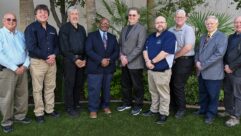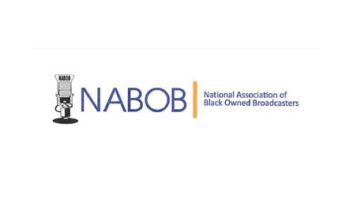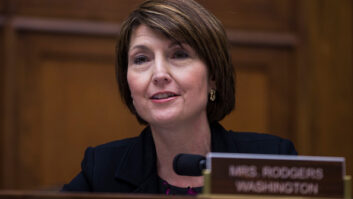LEBANON, N.H. The Supreme Court for the state of New Hampshire could decide later this year whether a radio broadcaster can build new towers despite a local ordinance prohibiting construction based on concerns for aesthetics and property values.
The case has drawn the attention of a national engineering group and could foreshadow a national debate over local zoning issues. Observers think the case is important at a time when television broadcasters, making the transition to digital, and the wireless industry are fighting for additional tower space.
Koor Communication Inc. holds an FCC construction permit for a Class B AM station at 720 kHz for Hanover, N.H., and wants to build four towers that require a minimum height of 266 feet in adjacent Lebanon.
However, that town’s zoning ordinance regulates the height of towers, limiting them to 42 feet.
Koor filed for variances to the ordinance on several occasions seeking to construct its antennas in accordance with its FCC license and CP, but were denied by the Lebanon zoning board because of the height issue. The broadcaster filed suit for summary judgment against the city in 1999 and has subsequently lost court decisions in New Hampshire State Superior Court leading to an appeal to the state’s highest court. A 2002 trial date is expected.
The broadcaster’s attorneys contend Lebanon’s local planning commission doesn’t have the authority to regulate the height of a broadcast tower nor where broadcast towers can be located.
Legal conflict
“The city effectively prohibits any new AM stations from being built, which is in conflict with federal law. The heart of the case is whether federal law is the law of the land. We have a FCC regulation that conflicts with a local ordinance. We say federal law has precedence,” said Fred Hopengarten, a telecommunications lawyer retained by Koor.
Hopengarten plans to argue to reverse the trial court’s rulings against additional broadcast towers, contending that any concerns over new stations causing additional AM interference are illegitimate.
“We feel the Lebanon zoning ordinance frustrates the statutory purpose of the Federal Communications Act of 1934 to promote and regulate nationwide radio communication by, among other things, preventing interference. We can cite three giant cases in the subject area of interference that say federal law has precedence,” Hopengarten said.
Bob Vinikoor, president of Koor Communication Inc., said city attorneys pointed to the controversial Cross-Field Antenna, which lacks FCC approval, as proof that the city’s zoning laws do not prohibit new AM towers. Developers of the CFA technology claim that its antennas could be built on small parcels of land and may even be suitable for rooftop applications.
“If we could do it with 42-foot towers, we would. We look at the ordinance as a blatant attempt to keep new towers out of the city,” Vinikoor said.
Bernard Waugh, the attorney representing the city, said the case is strictly a test of whether the city of more than 12,000 residents can enforce the ordinance it created.
“This is not a test of technology and whether the FCC was correct in granting the license for additional radio service. I don’t believe this is precedent-setting in any way.
“Koor was denied summary judgment twice already by lower courts saying the city has that right based on the grounds of aesthetics and property values. Based on that, (Koor) did not justify a need for a variance,” Waugh said.
50 kW plans
According to court documents, Koor’s attorneys maintain the city’s bylaws are invalid and violate the First Amendment’s protection of freedom from laws restricting free speech.
With a constitutional argument and analysis, the city’s ordinance requires a higher level of scrutiny than an ordinary land use regulation, Hopengarten said.
Vinikoor said nearly a dozen existing towers in Lebanon violate the height restrictions, but those were grandfathered in when the current ordinance was adopted in 1990. The purpose of the city regulation was to control the placement of cellular towers and equipment.
Vinikoor said the new station would transmit on 720 kHz with a power of 50 kW daytime and 500 watts nighttime. The towers would be top-loaded to keep their height at 266 feet. Top loading is a method used to improve the efficiency of a shorter tower by increasing its electrical height without increasing its physical height.
Vinikoor contends the tower site must be located in Lebanon to avoid nighttime interference with two clear-channel 50 kW stations, WOR at 710 kHz in New York City and WGN at 720 kHz in Chicago.
“If we felt we could build in Hanover as an alternative, we would have already,” Vinikoor said. “When you are dealing with 50,000 watts of directional AM, you only have so much space to locate it in without causing interference. The engineering of power and antenna location were all done when we filed for the CP with the FCC,” he said.
Vinikoor said the new station would have a news-talk format and directly serve the greater Lebanon area and much of New Hampshire and Vermont.
Tower ‘scourge’
The location of communications towers is a particularly hot issue across the northeast United States, Vinikoor said.
“It seems towers have become the scourge of modern society. Broadcasters are being affected by the angst of communities over cell towers. But everyone wants the modern conveniences of cell phones and pagers. We can’t have those things if everyone has the ‘not in my backyard’ mentality, yet these ordinances are going up all over New Hampshire,” he said.
Hopengarten said the Society of Broadcast Engineers has filed friend of the court briefs on behalf of Koor.
Chris Imlay, SBE attorney, said the SBE will offer expertise on technical issues in its brief filed with the court. In particular, the FCC’s exclusive jurisdiction to regulate the technical aspects of broadcasting.
“It’s a bold initiative on the part of Koors. AM broadcasters in particular have not had much relief from these cases concerning land use authority and broadcast service.
“A lot will depend on how the court will look at the case. Generally it boils down to a federal, state or local jurisdiction question. This court also seems intrigued by that,” Imlay said.
In its brief the SBE wrote, “The city’s antenna ordinance clearly precludes compliance with the FCC technical rules and should be deemed preempted.”
Imlay said, “We certainly think the FCC needs to play more of an activist’s role in these matters. They could even go to Congress to ask for the authority to preempt local land use. Broadcasters need to know that reasonable accommodations can be made with local communities so they can make things happen and get stations built.”
Hopengarten said the case will be scheduled for argument this year before the New Hampshire Supreme Court. A decision by the judges’ panel could take until 2003.
Koor Communication also owns WNTK(AM) in Newport, N.H., WNTK(FM) in New London, N.H. and WNBX(AM) in Springfield, Vt.












